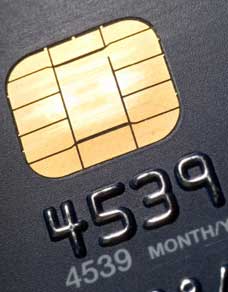EMV – or chip-enabled cards – are now being used by financial institutions nationwide, and that is great news for U.S. consumers. The innovative security technology has greatly reduced card-present fraud in more than 80 countries that have embraced it, and according to creditcards.com, 2016 research by MasterCard and Visa reveals that counterfeit fraud has already declined significantly at chip-enabled merchants across the U.S.
While EMV has made the point of sale much safer for consumers, the same can’t be said for card-not-present transactions, which is used for online shopping. In fact, industry data indicates that card-not-present fraud continues to rise year over year, and – as in the past – poses an even greater threat during the holiday season.
Card-not-present fraud is not protected by EMV, and increases every year simply because it is relatively easy for criminals to steal card data online. While credit unions excel at managing this type of fraud, the sheer volume of transactions conducted during the holiday season requires everyone to take extra precautions.
Detecting Fraud in Real Time
To help protect yourself, make sure your bank or credit union has advanced real-time fraud detection technology in place to monitor all transactions. While systems and services can go a long way toward detecting and mitigating risks, you can also play a valuable role in protecting your account data and card security.
You should see if your financial institution has a mobile app for card controls and alerts that allow you to monitor all card transactions and stop any fraudulent attempts before they can be carried out. The most advanced tools in this space allow you to restrict transactions to certain geographic locations, merchants, merchant types, channels or time periods.
You can also use the technology to turn a card “on” during a transaction and then “off” again when the card is not in use. Mobile security apps are highly effective – and very convenient for the card holder. They also serve as a point of engagement with your financial institution.
Additional Safety Measures
If you shop online, make sure you vary your login IDs and passwords. Using the same credentials across payment platforms quadruples a consumer’s chances of having all their accounts taken over.
Utilizing e-commerce solutions, such as Visa Checkout and MasterCard MasterPass, can help protect you online with an added layer of security.
You should also never to purchase from a retailer or organization you don’t recognize. The biggest issue we see with Cyber Monday is that CO-OP credit union members are presented with so many great deals. If an e-mailed offer looks too good to be true, it could very well be fraud – which means you should delete the message immediately. If the offer is legitimate, it will certainly be featured on the retailer’s website.
You should also protect your home PC and Android platforms with antivirus and anti-malware software. In the absence of these technologies, you are likely working in an environment in which every keystroke they type is copied and sent verbatim to a fraudster.
Card-not-present fraud can occur just as easily over the phone. Be very cautious with overly coercive phone offers, and especially with robocalls, or automatically dialed calls from machines. Never provide account data, social security numbers or any other identifying information to solicitors and always hang up. If the offer truly interests you, you can call the company back to verify its validity.
Protect Yourself from Online Card Fraud This Cyber Monday – Final Thoughts
Working with your financial institution, you can very effectively minimize card fraud and all the losses and inconveniences that go along with it.
John Buzzard is Fraud Specialist/Account Executive for CO-OP Financial Services, a financial technology provider to credit unions based in Rancho Cucamonga, Calif. (www.co-opfs.org).








